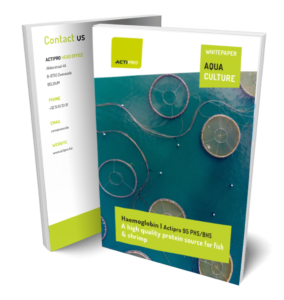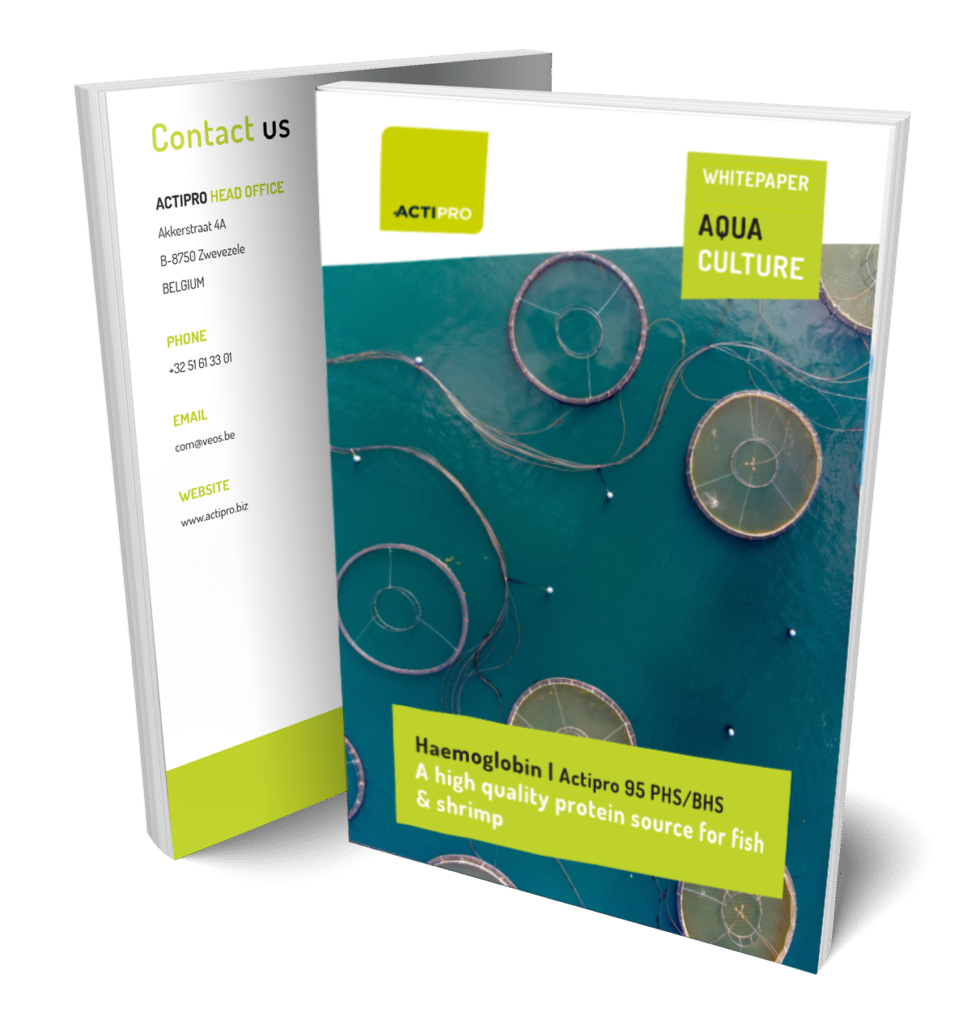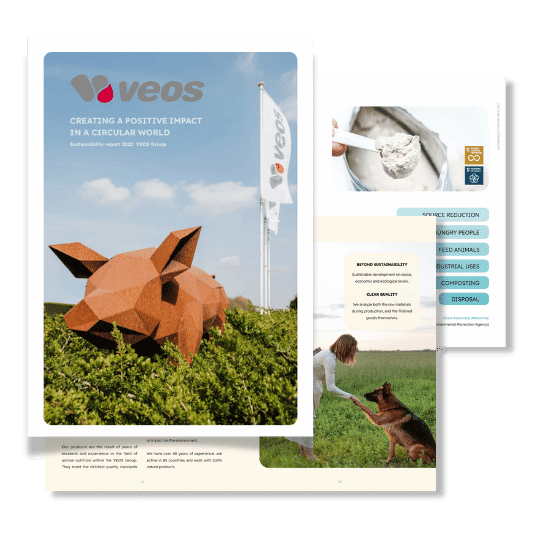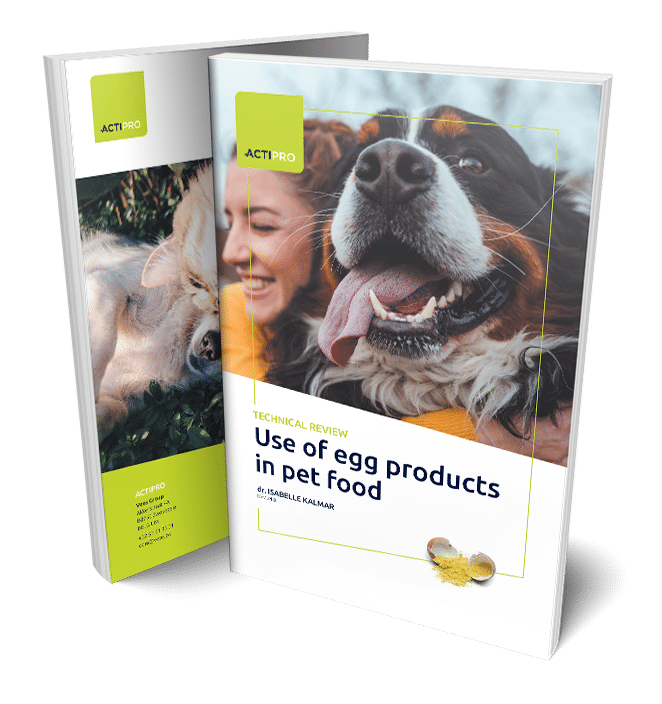Sustainable protein
in
Animal feed
The sustainability aspect will in the near future take a prominent role in the evaluation and selection of proteins in animal feed, next to the existing nutritional, productivity and health criteria.

What are sustainable proteins?
Animal sustainable proteins contribute largely to the sustainability requirements in contrast to vegetable proteins, fish meal, antibiotics and zinc oxide. Animal sustainable proteins are produced with the best available technologies in terms of energy and water consumption. Thanks to the recyling of valuable animal proteins, we can talk about a circular economy.
What are the advantages of using sustainable proteins?
Recycled valuable animal proteins have a much lower carbon footprint than vegetable proteins that are grown specifically for animal feed. There are also fewer concerns about indirect land use change, particularly the effect of soy production on tropical rainforests. The pressure on wild fisheries will also reduce by using animal proteins instead of fish meal.
Thanks to the spray drying technology used for the production of blood products and egg powder, the proteins are highly digestible and as a consequence there will be less environmental pollution in terms of nitrogen emission. Plasma powder is a sustainable alternative for antibiotics and zinc oxide in animal feed. Hence, plasma contributes to the reduction of the level of antibiotic resistant bacteria and zinc excretion in the environment.
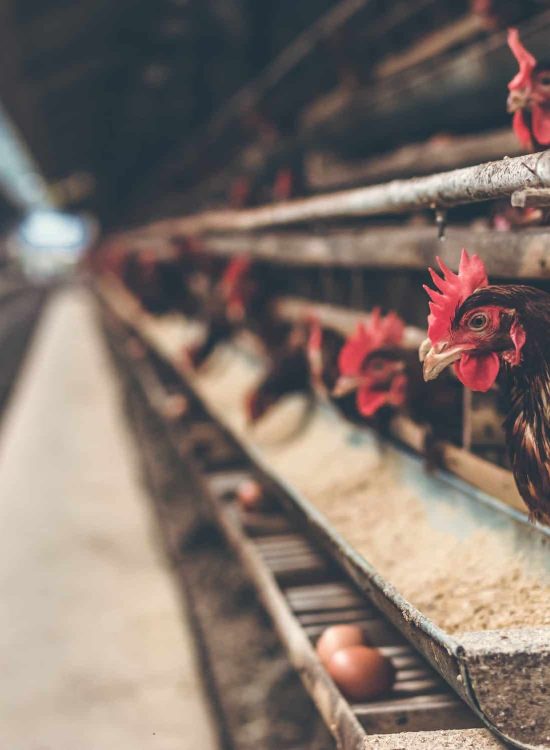
What kinds of sustainable proteins are there?
There are different kinds af animal sustainable proteins like plasma powder, hemoglobin powder, globin powder and egg powder.
Plasma powder improves the feed palatability and gut health within young animals with positive effects on overall performance and mortality. Thanks to the presence of antibodies and other bio-active molecules, plasma powder is considered as an in-feed alternative to prophylactic antibiotitics and zinc oxide.
Hemoglobin powder is a highly digestible animal protein source that is often used in animal feed and pet food as an alternative to less sustainable fish meal or vegetable proteins like soybean meal.
Globin powder is an oil-in-water emulsifier that improves the fat digestibility and thus energy efficiency in animal feed.
Egg powder is a very interesting natural ingredient as it combines different functionalities. First of all egg powder supplies dietary essential nutrients like amino acids, polyunsaturated fatty acids and vitamins A, D and choline. Besides its nutritional value, egg powder is also a rich source of bio-active components that can promote animal health and well-being. Finally, egg powder is also a technical aid in pet food and animal feed production thanks to its emulsifying and gelation properties.
How are sustainable proteins produced?
Blood products like plasma powder and hemoglobin powder are obtained by fractionation and spray drying of blood from healthy animals collected at slaughterhouses. Egg powder is produced by pasteurization and spray drying of liquid whole poultry eggs of the egg industry. Different grades of egg powder are being produced such as whole egg, egg white and egg yolk powder.
